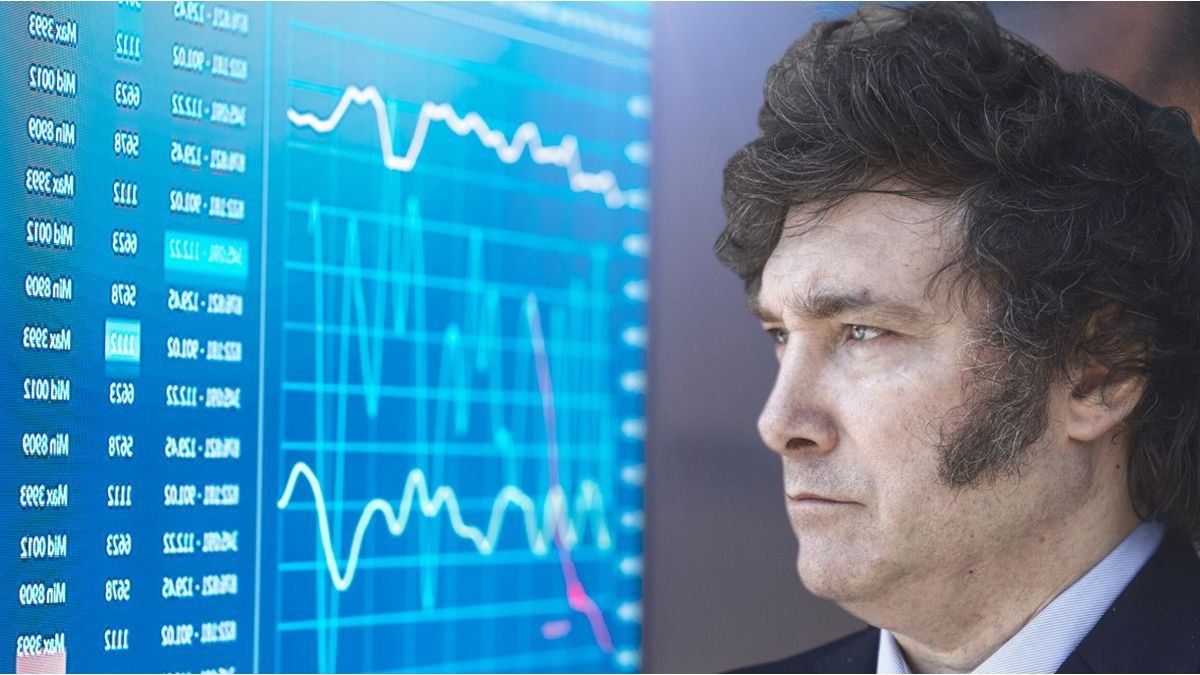The devaluation of 118%, economic deregulation and the increase in public service rates They caused strong inflation (25.5% in December, 20.6% in January and 13.2% in February) which, without compensatory measures or price agreements, significantly reduced real income. This is how they evaluated the reports of the main consulting firms in the first year of the libertarian president.
What the city says: Milei’s first year
From the consulting firm Miguel Ángel Kiguel, Econviewsanalyze that: “A year ago the country was dominated by uncertainty and fear of a large-scale crisis. Milei’s first objective was to weather the crisis, but there was concern in the market because it assumed a government with no experience in executive functions, with a marked minority in both chambers of Congress, without governors or mayors of his party and with a delicate social situation that could explode in the event of a spark.”
“Until that moment, adjustment was a forbidden word in politics, which both Cristina Kirchner and Macri had demonized, but Milei had no qualms about using it and saw it as a strength. And the interesting thing is that society tolerated it, and for now it he did without a word,” he adds.
And so, “A year later we see a much more stable economy, with zero deficit, with inflation much more controlled (although we are not Switzerland), with clear signs that a reactivation has begun which, although slow, seems to be expanding to more and more sectors, with an exchange gap that has become non-existent and with the country risk in the range of 750 basis points, which brings closer the possibility of re-accessing the market of capital”.
And the fiscal surplus?
For its part, the consultant 1816one of the most read in the city, celebrates that Argentina achieved a genuine fiscal surplus even with interests from LeFi and Lecap. According to the country, it achieved a fiscal surplus “genuine”, although with important nuances in its composition.
And between January and October of this year, the accumulated primary surplus reached $10.3 billion, while interest payments totaled $7.4 billion, resulting in a net financial surplus of ARS$3 billion. However, the capitalization of interest from instruments such as Lecap, Boncap and LeFiestimated at $10.4 billion, raises some doubts about the authenticity of these figures.
The report highlights that the majority of this capitalization, approximately $9.6 trillion, corresponds to interest rates that compensate for inflation, leaving only $0.8 trillion attributable to a positive real rate. Under this perspective, the adjusted financial surplus would be approximately $2.2 trillion, a positive result although lower than the officially reported one.
This achievement, frequently displayed by the Milei government as an indicator of fiscal order, is questioned by some consulting firms who point out that part of the capitalizable interest has not yet been liquidated. In his analysis, 1816 adopts an intermediate position: recognizes the existence of a genuine surplus, but emphasizes that its real magnitude is more limited by including all relevant variables. This balance highlights the complexity of interpreting fiscal results in a context of high inflation and tight monetary policy.
The warnings to the Government and the “weak” features of the program
In his analysis, 1816 emphasizes that positive fiscal results from 2024 should not lead to complacencybut it is crucial to focus on the economic challenges of the future. The study warns that, despite the fiscal achievements achieved, the country faces a complex outlook for next year.
Econviews.jpg
Among the main concerns, the consulting firm points out that in 2025 there will be no various extraordinary income that contributed to the collection in 2024, such as money laundering (0.1% of GDP), the Special Regime for Personal Assets (0.2% of GDP), the moratorium (0.2% of GDP) or the PAIS tax (1.1% of GDP). These elements, which represented a significant portion of the Gross Domestic Product in the last year, will not be available in the near future, which places the Argentine economy before a panorama of fewer resources to face the fiscal and economic challenges that lie ahead.
For its part, Econviews indicates that “a weak point of the program has been the slowness in lifting the stocks exchange. Initially, it was said that it was going to be done in June, but the arch was moved away and now it is thought that it will be raised only after the elections in October of next year. What seems to predominate is the fear that if it is lifted there could be a flight of the pesos that are trapped, leading to a jump in the dollar and generating a resurgence in inflation,” he analyzes.
And the reservations?
“It indicates that a second weak point is the recomposition of international reserves, since so far it has only been possible to make them less negative (from -11,000 million dollars at the end of last year to about -5,000 million recently). Although these numbers represents an improvement, it is far from having returned to positive values,” he warns.
And he adds that “this situation of low reserves has also led to the government not having dismantled the exchange rate. It is true that in recent months the Central Bank has accumulated dollars again, although a large part is due to private sector debt and not because of a surplus in the current account, which is more sustainable.”
In this regard, the latest EcoGo report warns that, for its part, gross reserves already reach US$30,000 million, while the increase in dollar deposits due to laundering already translates into an increase in reserve requirements. “Compared to a month ago, they are already up US$2.5 billion and double that compared to two months ago.”
Likewise, part of the increase is explained by the US$600 million that came in on Wednesday from an IDB loan, and which are included in the dollar deposits of the Government mentioned previously. “On the last day of November, gross reserves fell by US$1.4 billion, partly explained by the movement of reserve requirements, payment of BOPREAL (amortization of Series 2 and interest of Series 3) and it was announced that the first December day there was a sale of foreign currency for US$171 million, as usually happened (with the exception of the last two months).
Finally, Econviews concludes that looking to the future there are reasons to be optimistic. The zero deficit, the reduction of public spending, the drop in inflation, the structural reforms, the prospect of returning to the international financial market, the incipient growth, the improvement in real wages and the good prospects for sectors such as oil and gas. gas and mining are some of the indicators that show that we may be facing an inflection point in long-term growth.
“But there are always risks, and an important one is that there is a bitter history in Argentina and the region of anti-inflationary plans based on the exchange rate, which almost inexorably ended in turbulence. The fact that the macro is more solid minimizes the chances of a crisis. But at some point there will be a need for a policy to exit exchange rate rigidity. Let’s hope that the government is aware of that and does not fall in love with the fixed exchange rate.”
Source: Ambito
David William is a talented author who has made a name for himself in the world of writing. He is a professional author who writes on a wide range of topics, from general interest to opinion news. David is currently working as a writer at 24 hours worlds where he brings his unique perspective and in-depth research to his articles, making them both informative and engaging.




